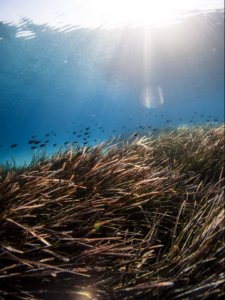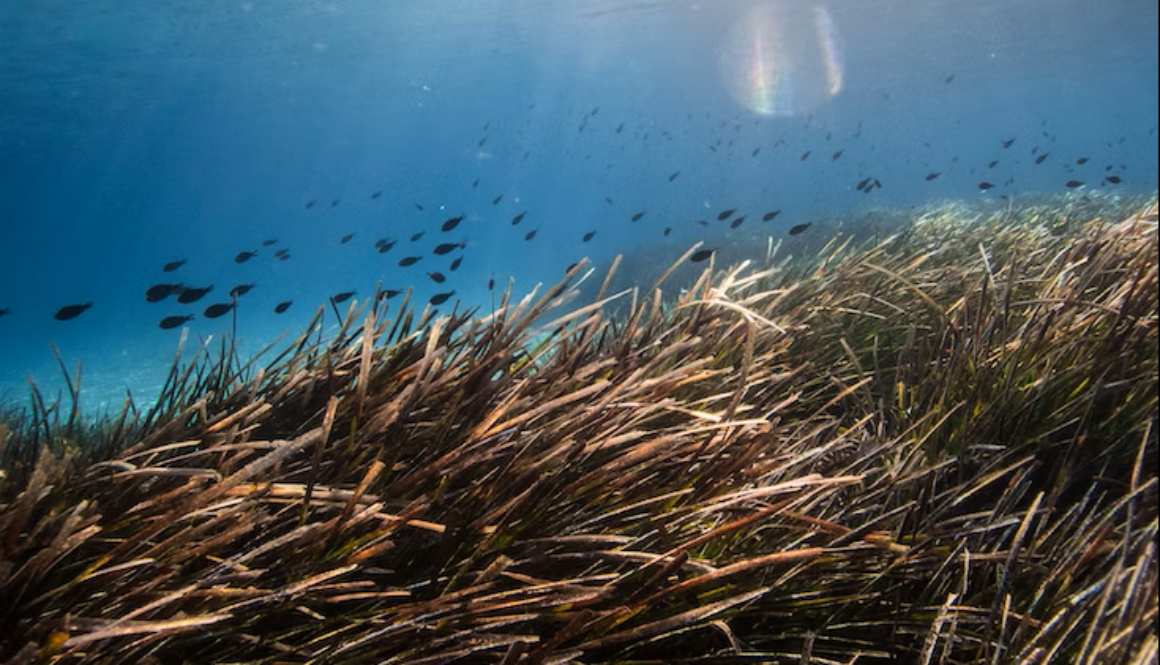Priroda na nišanu: Zakon EU o obnovi prirode visi o niti
Priroda na nišanu: Zakon EU o obnovi prirode visi o niti
Povodom Svjetskog dana oceana, Ribari s malim utjecajem na okoliš (Life platforma) pozivaju na ambiciozan europski zakon o obnovi prirode.
Zaustavljanje propadanja naših ekosustava i obnavljanje njihovog zdravlja, zajedno s dekarbonizacijom našeg gospodarstva kako bi se spriječilo daljnje globalno zatopljenje, dva su glavna egzistencijalna izazova s kojima se suočava ljudska rasa.
 U lipnju 2022. Europska komisija (EK) podnijela je ambiciozan prijedlog Zakona o obnovi prirode. Cilj mu je uvesti učinkovite mjere obnove temeljene na površini na najmanje 20% kopnenih i morskih područja EU-a do 2030., te na svim ekosustavima kojima je potrebna obnova do 2050. Međutim, zastupnici Europskog parlamenta (MEP) u Odborima za poljoprivredu i ribarstvo glasali su za odbacivanje prijedloga.
U lipnju 2022. Europska komisija (EK) podnijela je ambiciozan prijedlog Zakona o obnovi prirode. Cilj mu je uvesti učinkovite mjere obnove temeljene na površini na najmanje 20% kopnenih i morskih područja EU-a do 2030., te na svim ekosustavima kojima je potrebna obnova do 2050. Međutim, zastupnici Europskog parlamenta (MEP) u Odborima za poljoprivredu i ribarstvo glasali su za odbacivanje prijedloga.
Zastupnicima u Odboru za okoliš, javno zdravlje i sigurnost hrane (ENVI) sada preostaje glasati hoće li ili neće usvojiti prijedlog o usvajanju prijedloga EK s amandmanima. Ako to ne učine, prijedlog o obnovi prirode bit će odbačen do sljedeće sjednice Parlamenta 2024. godine, nakon izbora i pod novom Komisijom.
Glasanje u ENVI-ju održat će se sljedeći tjedan, 15. lipnja. U međuvremenu, prijedlog Zakona o prirodi visi o koncu. Pozivamo Odbor ENVI da sljedeći tjedan glasa za njegovo usvajanje.
Ribarstvo igra vitalnu ulogu u prehrani svijeta i osiguravanju sredstava za život, kao i u stvaranju osnove za značajne socioekonomske aktivnosti i stvaranje bogatstva. Međutim, dominantni model ribolova u EU temelji se na intenzivnom industrijskom vađenju velikih količina ribe, s velikim utjecajem na okoliš, uvelike ovisi o fosilnim gorivima i doprinosi globalnom zatopljenju. Ribarstvo također može utjecati na morsko dno i staništa, hranidbeni lanac i morsku bioraznolikost, smanjiti otpornost morskih ekosustava, narušiti odnose predatora i plijena te poremetiti sekvestraciju ugljika. Napušteni, izgubljeni i odbačeni ribolovni alati (ALDFG) imaju značajan, ali nepoznat, utjecaj na naš ocean i život u njemu.
Ove negativne utjecaje treba hitno riješiti. Izvješće Posebnog revizorskog suda o morskom okolišu iz 2020. (zaštita EU-a je široka, ali ne i duboka) utvrdilo je da djelovanje EU-a nije dovelo do oporavka značajnih morskih ekosustava i staništa. Njegov okvir za zaštitu morskog okoliša nije dovoljno dubok da bi se mora vratila u dobro ekološko stanje, dok sredstva EU-a rijetko podržavaju očuvanje morskih vrsta i staništa. Revizori su utvrdili da zaštićena morska područja (MPA) pružaju ograničenu stvarnu zaštitu, dok prekomjerni izlov ribe i dalje postoji, posebno u Sredozemlju.
“Gubitak zdravih morskih staništa, zajedno s prekomjernim izlovom, onečišćenjem i klimatskim promjenama, dovodi u opasnost temelje naše gospodarske aktivnosti i naše egzistencije. Moramo to preokrenuti programima obnove mora, a mali ribolov s niskim utjecajem dio je rješenja”, kaže Marta Cavallé, izvršna tajnica programa LIFE. “Desetljećima je Zajednička ribarstvena politika (ZRP) promicala intenzivne ribolovne operacije velikog obujma, na štetu ribljih stokova i morskog okoliša. Potrebno je preispitati trenutni model ribarstva EU-a i osmisliti strategiju koja će nas odmaknuti od ribolova velikog obujma i velikog utjecaja na ribolov s niskim utjecajem.”
Zapravo, mali ribolov u Europi osigurava lavovski dio radnih mjesta na moru u ribarstvu, s preko 701 TP3T flote. Međutim, zbog povijesnih nepravdi, njima se dodjeljuje samo 51 TP3T ulova.
Za LIFE, proces određivanja mjera obnove na temelju područja, postavljanja ciljeva očuvanja i obnove te odlučivanja o tome kako bi se njima trebalo upravljati mora uključivati inkluzivnu zastupljenost svih segmenata ribarskog sektora.
“Pristup zajedničkog upravljanja ključan je za uspjeh učinkovitog Zakona o obnovi prirode. LIFE pozdravlja rad zastupnice Aguilere i Pechovog odbora Europskog parlamenta u donošenju Rezolucije o zajedničkom upravljanju. To s pravom zahtijeva uspostavljanje participativnih struktura i multidisciplinarnog odbora s minimalnim brojem dionika koji predstavljaju sve zainteresirane strane u upravljanju ribolovnim područjem na najprikladnijoj razini te bolje uzimanje u obzir znanja i empirijskih podataka koje ribari prikupljaju iz svog okruženja”, kaže Cavallé.
Mjere obnove temeljene na područjima mogle bi također pružiti osnovu za uspješne aktivnosti priobalja, osiguravanjem širih priobalnih ribolovnih područja rezerviranih za malorazmjerni ribolov s niskim utjecajem, učinkovito upravljanih putem prilagodljivih lokalnih režima zajedničkog upravljanja u kojima se mali ribari podržavaju da učinkovito sudjeluju.
Paralelno s tim, potrebna je ponovna procjena pristupa EK-a primjeni načela maksimalnog održivog prinosa (MSY) u upravljanju ribljim zalihama.
Prema Christianu Tsangaridesu, koordinatoru programa LIFE za Baltičko i Sjeverno more: “Sve više znanstvenih dokaza ukazuje na to da je pristup EK-a upravljanju stokovima temeljenom na maksimalnom održivom prinosu uzrok neželjenih scenarija: slabljenja ribljih populacija i narušavanja sposobnosti manjih i mlađih riba da se suoče s rastućim izazovima poput bolesti, zagrijavanja oceana, eutrofikacije i intenzivnog ribolova. To je zato što je proizvodnja biomase imala prioritet nad dobro strukturiranim ribljim populacijama, s negativnim učincima na riblje stokove i naše ribarske zajednice.”
Potrebno je razmotriti alternativne alate za procjenu stokova u viševrstnim ribolovima i savjete koji mogu nadopuniti pristup maksimalnog održivog prinosa. Alternativni ciljevi upravljanja koji izbjegavaju maksimiziranje prinosa mogli bi dovesti do poželjnijih ishoda u smislu veće biomase mrijestilišta i dobne strukture ribljih populacija, uz male ukupne troškove za dugoročni ulov i nižu potrošnju energije/ribolovni napor.
Malo ribarstvo s malim utjecajem također bi moglo igrati ključnu ulogu u obnavljanju zdravlja europskih mora, posebno ako mu se osigura pravedan pristup ribolovnim područjima i resursima. Primjena članka 17. radi poticanja dobrih ribolovnih praksi trebala bi biti dio strategije obnove prirode, dodjeljivanjem ribolovnih mogućnosti onima koji love na najmanje destruktivan način.
Takav pristup je potreban kako bi se osigurao dugoročni održivi oporavak europskih mora i održiva opskrba morskim plodovima.

